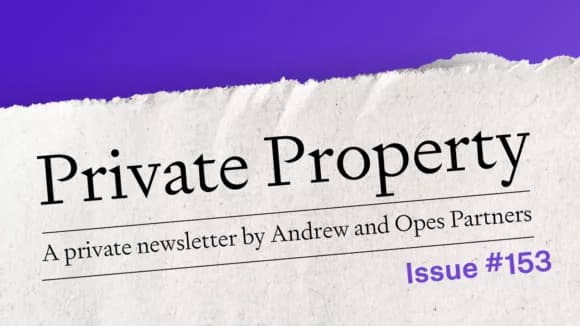
Property Investment
Trump's tariffs and the impact on NZ
Private Property issue #153
Mortgages
3 min read
It’s about to get easier to borrow money to buy a house.
If the bank previously said ‘no’. These three upcoming changes could make them say ‘yes’.
It could even mean you can borrow $400k more.
Next week, most Kiwis will get more money in their pay packet. National is cutting taxes, giving many people an extra $20 a week.
It sounds small. But, it could mean you can borrow an extra $32,000 for an investment property.
Jack has the average mortgage ($309,000) and is paying it off over 20 years.
If he went to the bank 2 weeks ago, they might lend him $510,000 to buy an investment property.
But after he and his partner get $20 a week each from the tax cuts, that goes up to around $542,000 (+$32k).
It’s not a lot. But, if your mortgage application is marginal, perhaps it gets you across the line.
Think back to early 2022. There were lots of articles that said it was hard to get a mortgage.
If you spent too much on Uber Eats, Kmart or coffee, the bank wouldn't give you a mortgage.
That was all down to the CCCFA, a new (tighter) set of rules the banks had to follow.
National is about to rewrite those rules.
In anticipation of the change, Westpac has already made a move.
They now won't include your rental property's rates, insurance and body corp in their calculations. This is when you apply for more money to buy a rental property.
By my estimates, you might be able to borrow an extra $80,000 for an investment property.
If you’re already a property investor, add an extra $80,000 for every rental property you own. That’s just my broad rule of thumb.
Let’s continue with the example of Jack (from before).
He could only buy an investment property worth $510k two weeks ago.
National’s tax cuts pushed him up to $542k.
Add in Westpac’s changes, which could push him up to $620k (+$78k).
All up, he can buy a rental property worth almost $110k more than he could just a few weeks ago.
When you get a mortgage from a bank, you might end up paying a 6.5% interest rate. It depends on how long you fix for.
But the bank will test you at a 9% rate when you apply for a mortgage. They want to know that you can still afford the mortgage even if interest rates go up.
That higher interest rate is called the ‘servicing test rate’.
But interest rates are falling. We're about 0.5% down from the peak.
As rates fall, those servicing test rates will drop too.
If test rates fell to 8%, Jack could borrow an extra $130k.
So, instead of buying a $510k house (like 2 weeks ago), he could afford an investment property worth $750k.
If they dropped to 7% … he could afford an investment property worth $916k (+$166k).
If Jack was already investing in property it’d make an even bigger difference.
Let’s be clear. The servicing test rates probably won’t drop tomorrow. They might not even drop next month.
But within the next 6-12 months, they will likely go down a bit. That will make it easier to invest.
Add up all the changes, and Jack (our average Kiwi investor) went from borrowing $510k to $916k. An extra $400k.
Not all of these changes happen overnight.
But one happened in the last two weeks (Westpac’s change). The other happens next week (the tax cuts).
Once the changes come – they come.
So, if you couldn’t get a loan 2 weeks ago. Maybe soon you can.
Managing Director, 20+ Years' Experience Investing In Property, Author & Host
Andrew Nicol, Managing Director at Opes Partners, is a seasoned financial adviser and property investment expert with 20+ years of experience. With 40 investment properties, he hosts the Property Academy Podcast, co-authored 'Wealth Plan' with Ed Mcknight, and has helped 1,894 Kiwis achieve financial security through property investment.